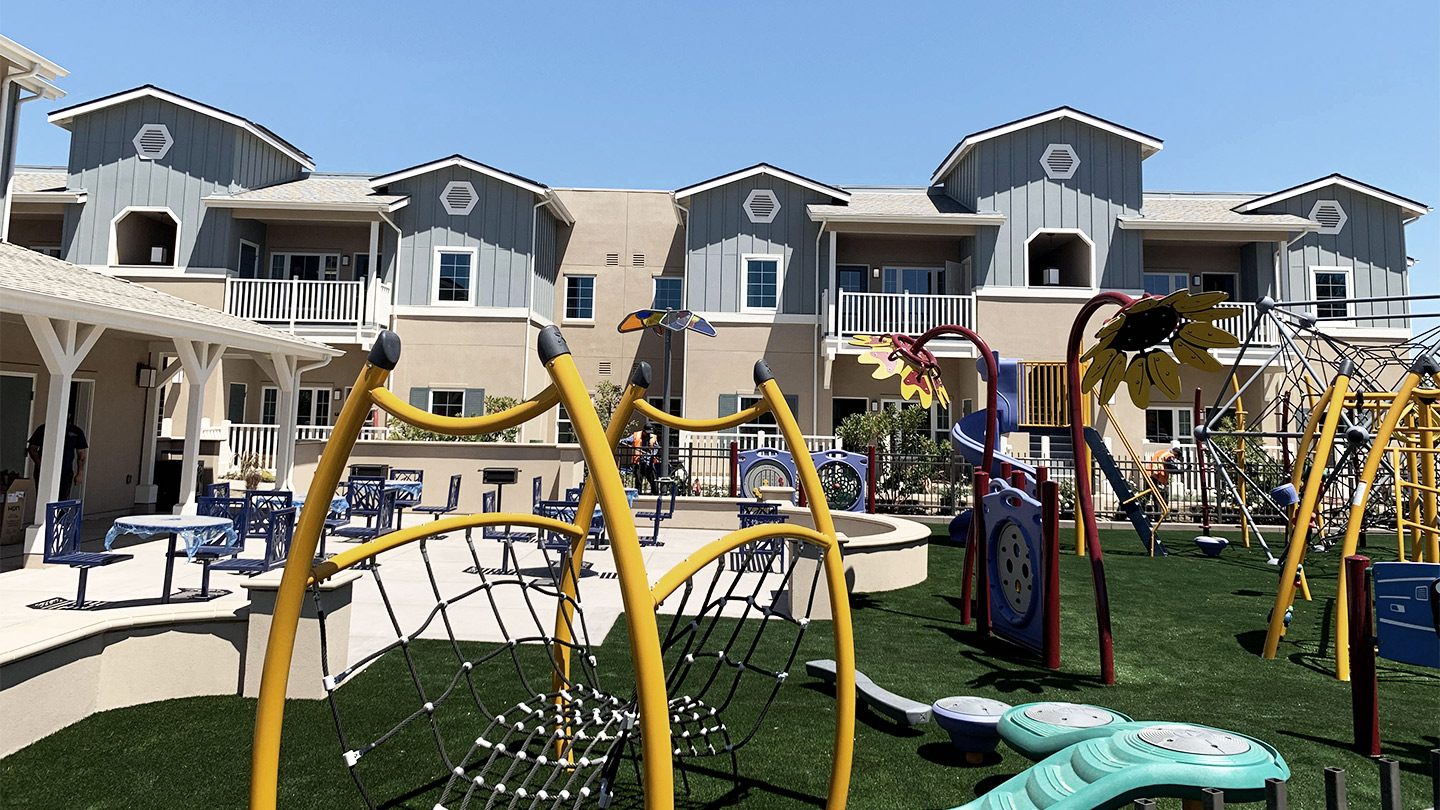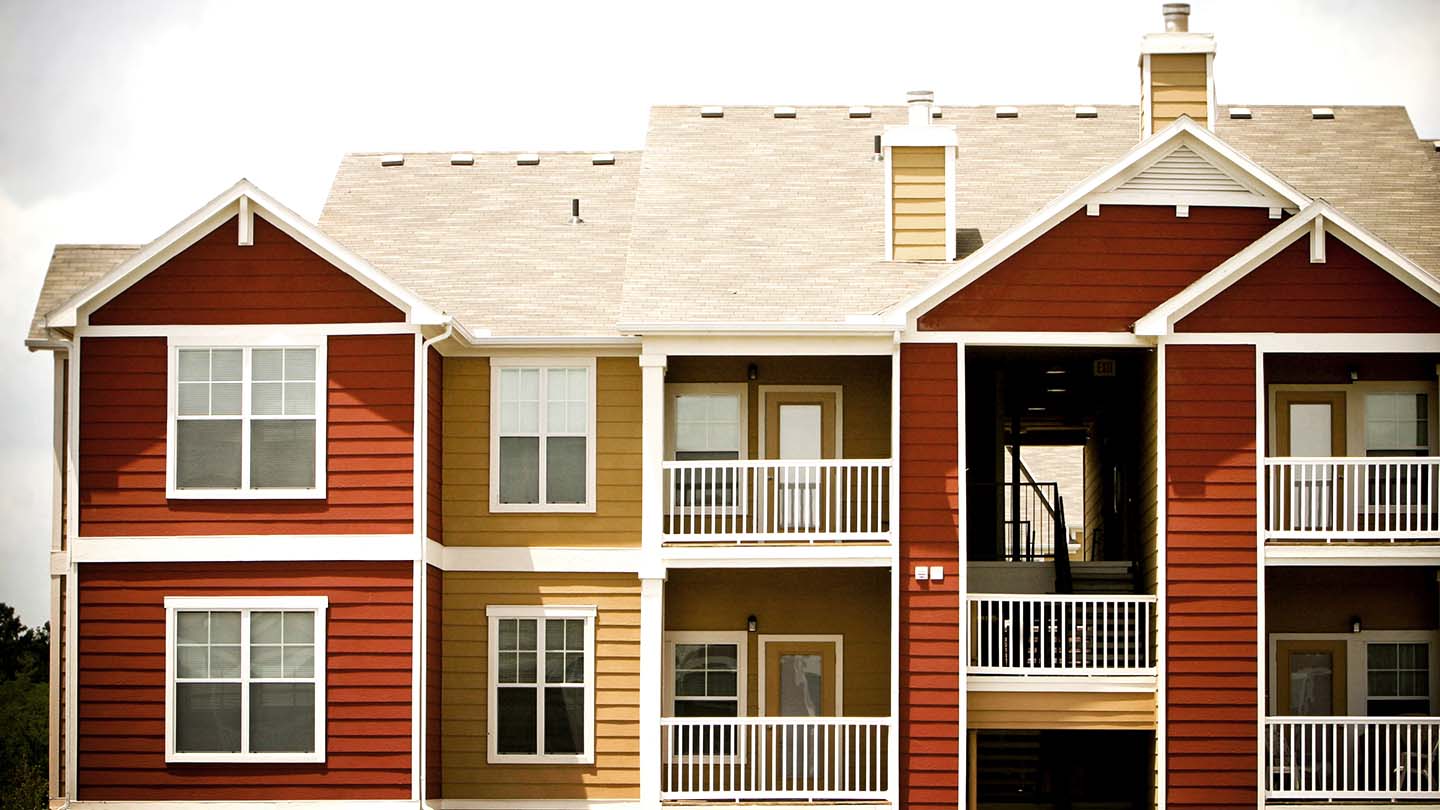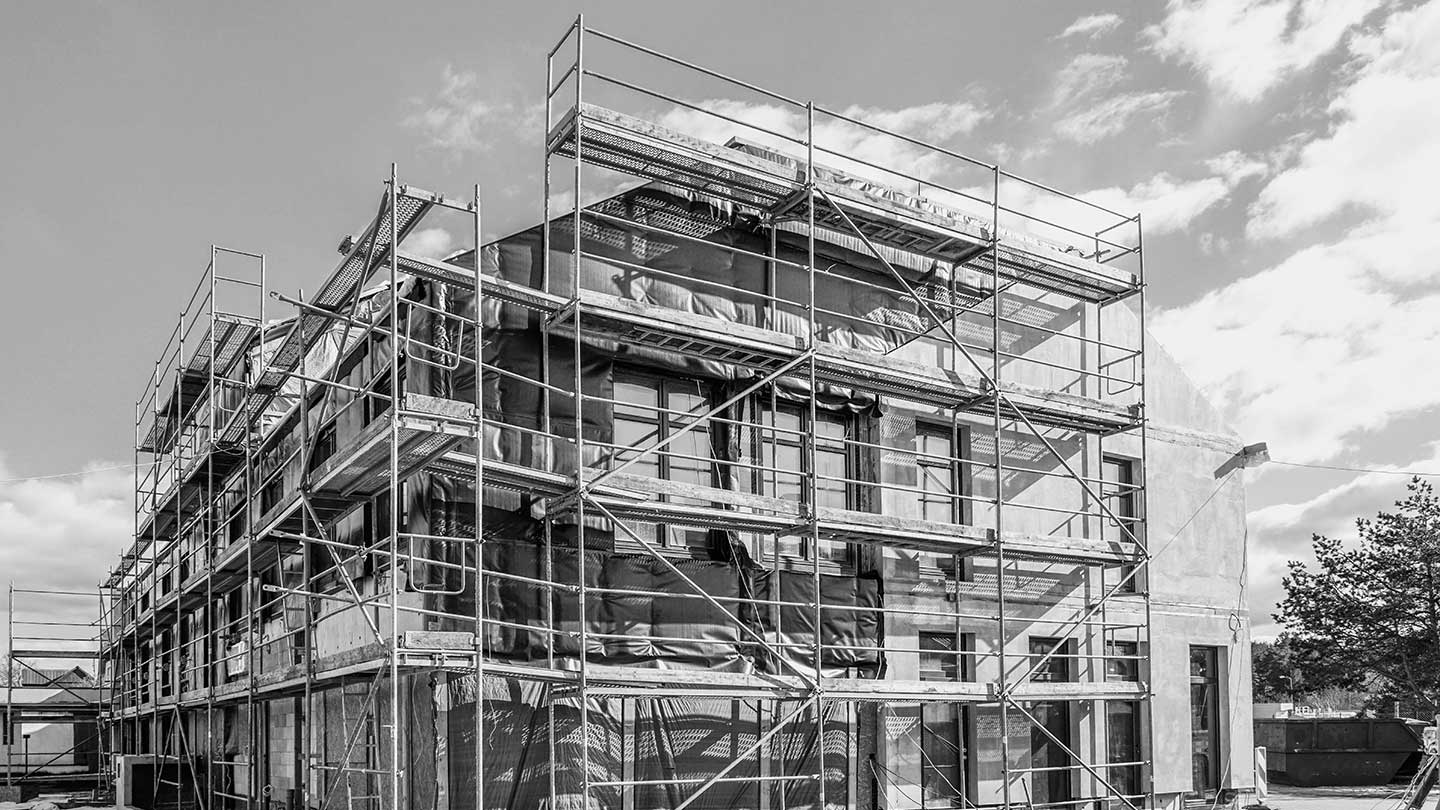
Building trust takes time, especially in the affordable housing space.
“In some neighborhoods, people don’t welcome affordable housing,” said Cécile Chalifour, Head of the West Region for Community Development Real Estate at JPMorgan Chase. “You have to show them how thoughtful and well-managed those projects are and what an asset affordable housing will be to their community.”
Founded in 1970, People’s Self-Help Housing (PSHH) has spent decades cultivating strong community ties to develop and maintain affordable housing on California’s Central Coast.
“We’ve been integrated in the communities we serve for years and have earned their trust,” said Ken Trigueiro, CEO & President of PSHH. “Community members understand that we’re not trying to push a hidden agenda—we’re here to listen to their needs. We’ve been around for a long time, we’re taking care of our properties and we’re doing what we say we’re going to do.”
The organization was able to gain support because of its unique differences, including its:
- Community-based approach
- Integrated service model
- Dedication to overlooked populations
Community-based approach
PSHH is firmly embedded in communities across San Luis Obispo, Monterey, Santa Barbara and Ventura counties. It has more than 200 employees in various jurisdictions. Ultimately, the organization’s community-based approach may be the biggest reason for its strong local support.
The method focuses on local input and being a part of the community, which includes:
- Staff members who are active in the community: Many PSHH staff members are part of local organizations such as planning commissions and city councils, so they’re plugged into the communities PSHH serves. “We’re always asking ourselves, ‘What are we hearing?’ ‘What do we know about the area?’” Trigueiro said.
- Working closely with neighbors early on: Before an affordable housing project’s design begins, PSHH works to understand the area’s top concerns and needs. The team invites community members to outreach sessions, often held at a nearby PSHH property so attendees can see a finished project. “We say we’re in the neighborhood, and we’ve got an affordable housing project that we want to do, but it’s not designed yet,” Trigueiro said. And the team wants neighbors’ input on what the project could include.
- Ongoing building investments: As a property management company, PSHH prides itself on maintaining its buildings. “Even though some properties are aging, we keep them looking good,” Trigueiro said. “Every opportunity we have, we put rehabilitation money into those buildings.” Ongoing investments can extend the properties’ life and make them great places to live. As many communities realize the need for affordable housing, PSHH has also added units to older buildings.
- Support services: “It's not just about putting people in structures,” Trigueiro said. “But how do we make them successful after they move in?” PSHH started offering its own supportive housing program for residents more than 20 years ago. The organization now employs over a dozen licensed clinical social workers, connecting residents to mental health services, job training and other resources.
PSHH by the numbers
50+
rental communities built
4
Central Coast counties include PSHH housing
700+
formerly homeless people housed
A fully integrated service model
PSHH’s integrated service model allows it to offer comprehensive in-house services, including:
- Brokerage
- Entitlement
- General contracting using local subcontractors
- Product procurement
- Project management
- Property management
- Resident services
“Being fully integrated allows for better quality control. We can implement what we say we're going to in the right way,” Trigueiro said.
This model also creates efficiencies and can help projects run smoothly. “Outside of the big metros, it’s important to have contractors experienced in the market. And for all affordable housing projects, it’s crucial to have property management companies that know the population and its specific needs,” Chalifour said. “That experience means we can trust the project will not only get done but also be successful for the long term by serving the residents well.”
Often overlooked populations
Developing affordable housing in rural areas, such as the Central Coast, has unique challenges and considerations including higher construction costs, limited infrastructure and gap financing, and low rents and low discount to market.
Staffing in rural areas can also be an issue. Labor shortages make it harder to find property managers and maintenance staff, an already difficult job to fill because it can entail around-the-clock work.
“Rural development deals are tough,” said Kelly Edwards, Executive Director of Tax Oriented Investments-Direct Affordable Housing at JPMorgan Chase. “Somehow, People’s Self-Help Housing has cracked that nut because they have some fantastic people working for them.”
“We’re proud of our work financing rural affordable housing with People’s Self-Help Housing” Chalifour said. “Our Racial Equity Commitment is closely aligned with the organization’s mission and the needs of underserved populations in rural areas. PSHH and JPMorgan Chase intentionally identify and listen to marginalized populations to increase affordable rental housing with features and support services specific to their needs.”
PSHH serves many populations including seniors, veterans and other groups that are often overlooked, such as young adults aging out of foster care and individuals with disabilities. For example, Community Development Banking recently worked with PSHH to finance Pismo Terrace in Pismo Beach, which includes mobility and sensory-accessible units.
Agriculture is prominent on the Central Coast, and farm workers need places to live. Like other populations, this group has unique considerations. PSHH addresses them by:
- Designing with the job in mind: Farm workers often come home with food and environmental residue on their clothing and mud coating their boots. In response, some PSHH properties include outdoor areas where workers can hose down their boots and downstairs shower rooms, so residents don’t have to trek through the house in dirty clothing.
- Taking extra steps to ensure academic access: “We had a lot of moms in farmworker families who want their kids to do well in school and asked us to help,” Trigueiro said. In response, PSHH started its K-12 education program. Available at 10 apartment communities, the program features classrooms and computer labs for intensive afterschool programs.
“We hire a teacher, we have a curriculum, we partner with the local school districts and the teachers. If there’s a language barrier with our parents and teachers, we’re able to bridge that gap.”
— Ken Trigueiro, CEO & President of People’s Self-Help Housing
The bottom line
PSHH’s integrated service model, support for overlooked populations and efforts to work closely with the community have fueled its success for more than 50 years.
“Ultimately, it’s about understanding what the community wants,” Chalifour said. “In affordable housing, none of us do the work we do just to put one more building on the map, we want to create assets for the community for the long term. It’s not just brick and mortar. It's about communities.”
© 2023 JPMorgan Chase & Co. All rights reserved. JPMorgan Chase Bank, N.A. Member FDIC. Visit jpmorgan.com/commercial-banking/legal-disclaimer for disclosures and disclaimers related to this content.







